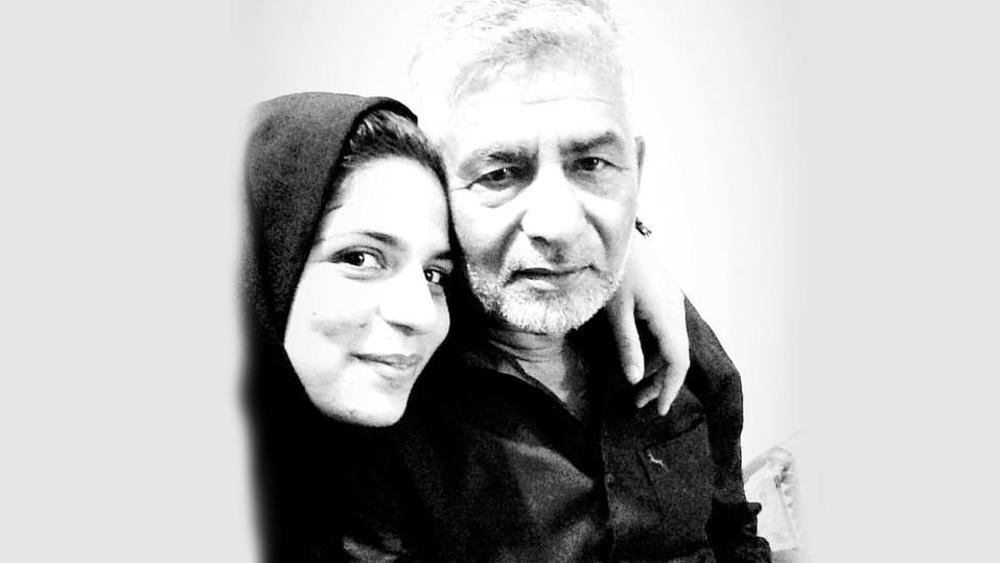AhlulBayt News Agency: A Kashmiri pro-freedom leader, Altaf Ahmad Shah, who was imprisoned at India’s Tihar Jail for the past five years, died on Monday night, days after being diagnosed with late-stage renal cancer.
Shah’s daughter announced it on her Twitter page early on Tuesday.
Ruwa Shah, a journalist, said her father breathed his last at the All India Institute of Medical Sciences (AIIMS), New Delhi, “as a prisoner”.
We have been waiting calmly at AIIMS mortuary. Nobody from police or Magistrate( Sana Khan - who was asked to be here for the body to be released) is here yet. The delay will worsen the situation. Have to be at airport 3 hrs prior to last flight at 18.30 @PMOIndia @HMOIndia
— Ruwa Shah (@ShahRuwa) October 11, 2022Shah, a son-in-law of the deceased patriarch of Kashmir’s freedom movement Syed Ali Shah Geelani, is the third Kashmiri separatist arrested in an alleged "terror-funding case" in 2017 to die in custody.
He was recently diagnosed with late-stage renal cancer and his family alleges that he didn’t receive proper medical care during the period of incarceration.
The news about Shah’s fatal disease was announced by his daughter on September 30, who said the disease had spread to his vital organs, imploring authorities to transfer him to a hospital.
"It is my whole family's request to please allow us to see him and consider his bail application on health grounds," Ruwa wrote on her Twitter page.
My incarcerated father has been diagnosed of acute renal cancer which has metastasis and has spread to his other body parts, including his bones. It is my whole family’s request to please allow us to see him and consider his bail application on health grounds @HMOIndia @PMOIndia
— Ruwa Shah (@ShahRuwa) September 30, 2022Shah was later shifted from New Delhi's Tihar Jail, where he was incarcerated, to Ram Manohar Lohia Hospital in the Indian capital, which reportedly didn't have an oncology department.
"The PET scan that is needed to be done is not available at RML, where he is currently under custody treatment. Doctors refuse to speak to us. The police are not letting us see him. He needs treatment ASAP," Ruwa wrote on Twitter.
After days of passionate appeals to top authorities, including Prime Minister Narendra Modi and Home Minister Amit Shah, Shah was shifted to the AIIMS on Oct. 3 following an order by the Delhi High Court.
On Friday, Ruwa was quoted as saying by an Indian news portal The Quint that her family had appealed for his release so that he can "die as a free man.”
“We know these are his final days. He is on a ventilator and is critical. But the worst part is that he is still not a free man. This was always his biggest concern since being jailed, that he will die a prisoner. We appeal to the courts to free a dying man and grant him bail on humanitarian grounds,” she said.
The deceased was an important member of the pro-independence party Tehreek-e-Hurriyat (TeH), founded by Geelani in 2004. Geelani passed away from a series of illnesses last year.
In 2017, Shah was amongst seven separatist leaders arrested by India’s National Investigative Agency (NIA) in a case of alleged "terror funding". He had been lodged in Delhi’s Tihar jail ever since.
Many human rights activists, political parties, and pro-freedom groups had appealed for Shah’s release from jail on humanitarian grounds following his failing health.
The All Parties Hurriyat Conference (APHC), an alliance of pro-freedom parties in the Himalayan region, also issued a statement recently, urging his release.
The conglomerate said Kashmiri political prisoners lodged in various prisons across India, including Shah, have developed serious health problems due to long-term incarceration.
“It is against the fundamental human and democratic principles to incarcerate by use of power those who have a divergent political outlook and an ideology at variance from the one espoused by the rulers,” the statement noted.
Since the abrogation of the region’s semi-autonomous status three years ago, thousands of people including journalists, pro-freedom leaders, and political activists in the contested region have been arrested under draconian laws by the Indian government.
Kashmir is regarded as the most militarized regions in the world, split between estranged neighbors India and Pakistan since the partition of British India in 1947.
Both nuclear-armed countries claim all of Kashmir and have fought three wars over the territory.
/129

